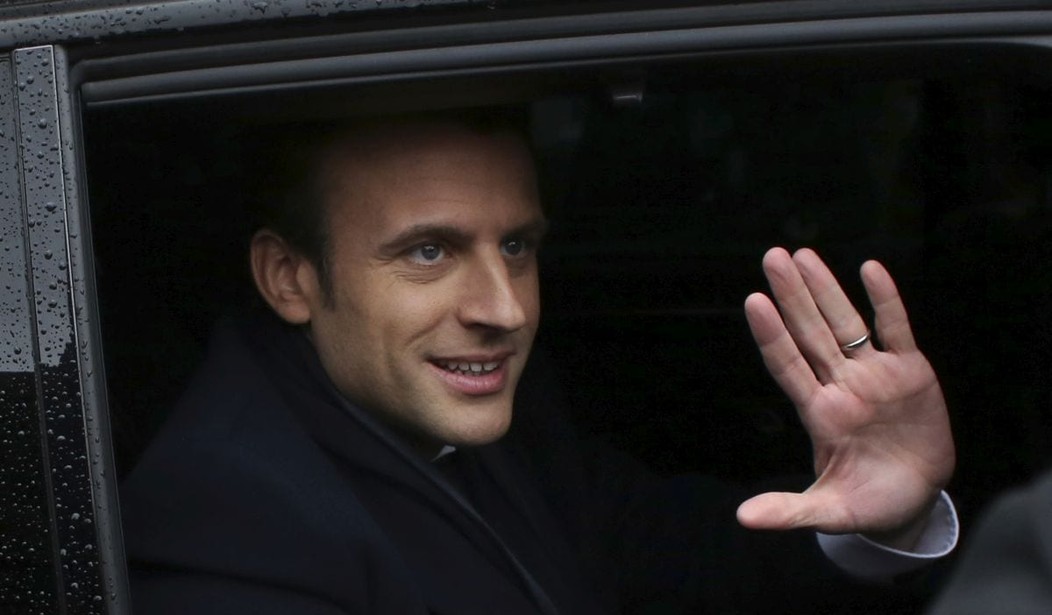Another year, another raft of televised Christmas and New Year’s speeches by the Western European heads of state and government who are busy whitewashing terrorism, buttressing the EU, and generally running their countries into the ground. As always, the Christmas addresses tended to be short on meaningful references to Christianity, while pretty much all the leaders skirted the harsh realities of mass immigration and steady Islamization, preferring instead to speak, in sunny, saccharine, and consistently vague terms, about community and volunteerism.
Take Sweden’s King Carl XVI Gustav. His country is racing toward its doom, but you’d never know that from his fatuous Christmas oration, which began on a religious note (“A child is born”) only to pivot to the idea that Christmas’s message of “peace, joy, and fellowship” can be grasped by everybody, no matter “where one comes from or what one believes.” Similarly, while referencing the April 7, 2017, terrorist attack in Stockholm, in which five people died, the king did so within the context of praising those who’d helped others on that day – which enabled him to leave terrorism behind pronto and begin waxing poetic about mutual respect and community service. It was as if he believed one could heal social divisions with platitudes.
In the Netherlands, which are also undergoing galloping Islamization, King Willem-Alexander observed that even as Christmas is a family time, it “connects us emphatically with each other” – a fact that should lead us to ask “What are we doing for our community?” and “How do we live with differences?” His prescription: volunteer, help strangers, show curiosity about others, and seek out similarities with them. Like his brother monarch in Sweden, Willem-Alexander spoke as if his subjects’ problems could be cured with clichés.
King Harald V of Norway seemed to be using the same hack speechwriters as his Swedish and Dutch cousins. After lecturing his subjects about the good in every person, he celebrated – what else? – volunteerism and community service and argued that building a better society means including people from every background and letting them “contribute on their own terms” (whatever that means). Harald, who has previously dismissed the importance of Norwegian culture and identity, went there again, proclaiming that “there are over five million different stories about who we are” (that’s Norway’s population) and that “we shouldn’t be surprised that different people in Norway live by different values.” Even more than Carl Gustav and Willem-Alexander, this clown has no business on a throne.
Belgium’s King Philippe is no prize either. In his annual salutation, he recalled a palace visit by a group of children, one of whom “mentioned how lucky we are to live in a country as beautiful as Belgium.” This led to a stretch of insipid rhetoric about the “rich inner beauty” in each of us “that deserves to be cultivated.” Philippe also recounted a recent meeting with some “young people of immigrant origin” who “developed social-integration projects” to cultivate their “self-esteem” and whose “beautiful” facial expressions “spoke volumes.” (Philippe spoke on Christmas Eve, but was mum on the holiday itself, even though his opening bit about those children visiting the palace would’ve made it natural to precede it with a reference to “a child being born.”)
Which one of these kings is worst? Hard to say. As usual, Queen Margrethe of Denmark outdid them all: she didn’t say anything brave or profound, but at least she didn’t say anything downright idiotic. And Queen Elizabeth was even better, perorating with refreshing candor and near-eloquence about her Christian faith at the end of a year when London and Manchester had undergone “appalling attacks.” (Unlike others, QE2 didn’t feel called upon to be religiously inclusive when speaking on a Christian holy day as head of an established church.)
Then there were the elected nabobs. Were they worse than the crowned heads or better? You decide. In France, the streets of whose major cities have become crowded with immigrant tent camps, President Emmanuel Macron promised to “end homelessness” but not mass immigration, which he framed as a moral issue. (Meanwhile, as a result of that mass migration, more than 1,000 cars were burned up across France in what has become a cherished New Year’s Eve tradition, and French cops were being beaten up by culture-enhancers, a development that Interior Minister Gerard Collomb called “savage.”)
As for Angela Merkel, she admitted that while many Germans like their country as it is – and even work with refugees – others “are worried about social cohesion,” apparently because they’re “unable to keep up with the pace of our time.” (Get it? If they have a problem, it’s their fault.) After agreeing that high crime and immigration levels are “realities” and thanking the police – who at that very moment, she said, were “protecting our country’s many New Year’s parties” (you’d think there’d have been a glint of embarrassment in her eyes when she brought up the cops, but nope) – Merkel stressed that Europe should remain “one community.” (It’s presumably in pursuit of that objective that Beatrix von Storch, deputy leader of the Alternative für Deutschland party, risks being charged with “incitement to hatred” after criticizing Cologne cops for tweeting a New Year’s message in Arabic.)
Theresa May, for her part, was brisk and businesslike, claiming to make progress toward Brexit and promising more cash for “our schools, our police, and our precious NHS.” After some predictable pabulum about “peace” (good) and “extremism” (bad), May asserted her goal of “eliminat[ing] all prejudice and discrimination” and of establishing “a public sphere where debate is constructive and courteous.” (Which, I suspect, means: we’ll keep letting in jihad preachers but retain the ban on Islam critics like Robert Spencer and Pamela Geller, and continue the policy of ignoring actual crimes while vigorously investigating and prosecuting “hate speech.”)
So much for Western Europe. Only to the East could you find guts, straight talk, substance. Czech president Miloš Zeman spoke not like a parent lullabying his children to sleep but like a CEO being accountable to his shareholders: “The Czech Republic is the sixth safest country in the world…..We have the lowest level of unemployment in the European Union and also the lowest degree of income disparity.” Economic growth is high, public investment low; GDP is going up, but so should living standards. Welfare rolls and government bureaucracy should be cut; the EU must protect its external border and NATO must combat Islamic terrorism more vigorously. (Yes, he actually used the words “Islamic terrorism.”) “Nobody can dictate to us,” Zeman said, “whom we will allow onto our territory.”
Polish prez Andrej Duda also talked like a grown-up, focusing on his country’s economic growth and national security, celebrating its freedom and “the greatness of our history.” And Hungary’s Viktor Orbán was even more blunt, vowing that, unlike many peoples elsewhere in Europe, Hungarians would not “retreat behind concrete blocks” on Christmas or be “harassed in the New Year’s Eve crowd.” He emphasized the importance of protecting “Christian culture” at a time when “fundamentals of European life are under attack.” Where does Europe’s future lie? These Christmas and New Year’s speeches certainly left no doubt about the matter.









Join the conversation as a VIP Member